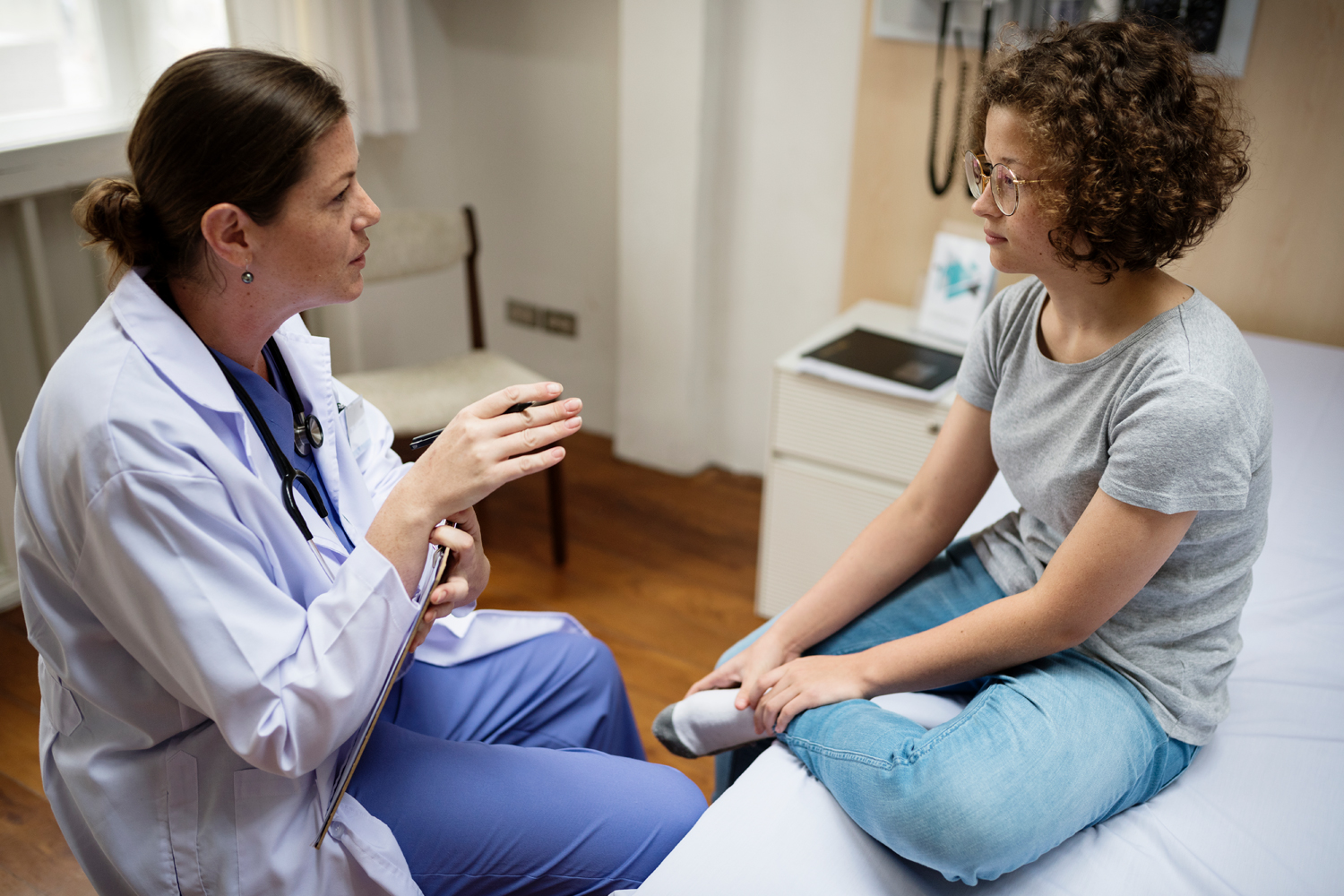A CANCER VACCINE: a few shots that could significantly lower one’s chances of developing several types of cancer. It sounds like a dream, but it’s real. The human papillomavirus (HPV) vaccine can prevent HPV, a risk factor for developing anal, cervical and four other cancers. Yet many young people who have already had cancer choose not to get the HPV vaccine.
Why they refuse is the subject of a study published in the February 2023 issue of Cancer. According to the study of 301 young cancer survivors who refused to participate in a clinical trial that involved receiving the HPV vaccine, 215 of them, or 71.4%, did so due to concerns regarding the vaccine.
“The cancer-survivor population is at increased risk for developing HPV-related cancers compared to the general population,” says Brooke Cherven, the lead author of the study and a pediatric cancer researcher at Emory University School of Medicine in Atlanta. “They also have lower HPV vaccination rates than the general population. Both of these issues make cancer survivors particularly vulnerable—thus, receipt of the HPV vaccine is especially important for them. The HPV vaccine is an effective intervention to prevent future cancers and is an important part of cancer-survivorship care.”
HPV in most people is cleared by the immune system—but for some, the virus can remain for several years and increase the risk of developing certain cancers. According to the Centers for Disease Control and Prevention (CDC), HPV is thought to be responsible for 90% of anal and cervical cancers and raises one’s risk of developing four other cancer types. Condoms and dental dams can lower transmission of the virus but do not prevent it. And approximately half of all HPV strains carry a high risk for future cancer if not cleared by the immune system. The CDC recommends HPV vaccination for children who are 11 or 12, before they have the chance to contract HPV. Even for those who miss this timeline, the guidelines suggest that everyone up to age 26 receive the vaccine.
“Cancer survivors are growing in number as early detection and effective treatments allow people to live longer,” says Noel Brewer, a professor of health behavior at the University of North Carolina Gillings School of Global Public Health in Chapel Hill who wasn’t part of the study. “But cancer survivors are at twice the risk of a later cancer, compared to the general population. HPV vaccination prevents six cancers that account for 5% of the world’s cancer burden. We want to make sure that cancer survivors are protected from getting cancer again.”
So why are many people hesitant to get the vaccine after cancer treatment? Cherven says the study found several reasons, including safety concerns and vaccine hesitancy, or because the vaccine was not recommended by their doctors. Over 30% of the respondents cited personal or family health beliefs about vaccines generally or the HPV vaccine specifically. Meanwhile, almost 23% expressed views categorized in the study as “information deficits”—for example, the belief that at age 11 the patient was too young for the vaccine. And more than 17% had reservations about this particular vaccine’s newness or potential side effects. Some in this category had heard of side effects from others who claimed firsthand knowledge. In some cases, participants seemed to refuse the vaccine because of the perception of HPV as a sexually transmitted infection, with the stigma that can carry. (“She attends a Catholic school where the nuns highly discourage it,” said the parents of one 15‐year‐old female cancer survivor.) Men and boys were more likely than women and girls to refuse the vaccine due to external influences, like not having a doctor recommendation. Women and girls were more likely than men and boys to refuse due to health beliefs or family influence.
Cherven notes that some respondents cited reasons related specifically to the experience of having gone through cancer treatment in explaining the refusal of the HPV vaccine. These included “concerns that they had already ‘been through so much’ and wished to avoid further medical interventions, or guidance from a health care provider to delay or decline the vaccine ‘because of all the treatment he’s had.’”
The study’s authors feel that young cancer survivors should be counseled as clearly as possible to get the HPV vaccine—but which strategies will succeed in guiding the young-survivor population toward the vaccine? “Emphasizing the HPV vaccine as cancer prevention can be an effective strategy to increase vaccine uptake in this population,” Cherven says, adding that previous research has shown the HPV vaccine is safe and produces an immune response in cancer survivors. It’s also included in the Children’s Oncology Group long-term follow-up guidelines for survivorship care.
Brewer believes that basic logistics of vaccine access should be a main focus of vaccination efforts. A 2021 study he co-authored indicated that efforts such as “risk communication and confidence-boosting campaigns” were not especially effective. “The most important thing is to make it easy to get the HPV vaccine,” he says. For parents and cancer survivors skeptical of the vaccine, he advises, “Have them talk to their doctor. A provider recommendation has the single-largest influence on HPV vaccine uptake.”
In those critical conversations between a doctor and patient, Cherven says, “many of the reasons for HPV vaccine refusal given by cancer survivors can be addressed through evidence-based messaging. Understanding common reasons for refusal in this population can help health care professionals feel more prepared to address these concerns directly when discussing HPV vaccination with young cancer survivors and their parents.”
Cancer Today magazine is free to cancer patients, survivors and caregivers who live in the U.S. Subscribe here to receive four issues per year.





